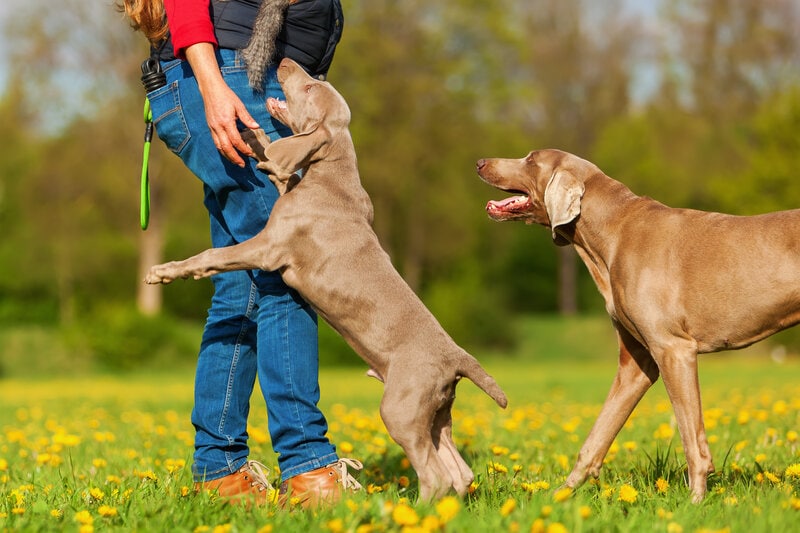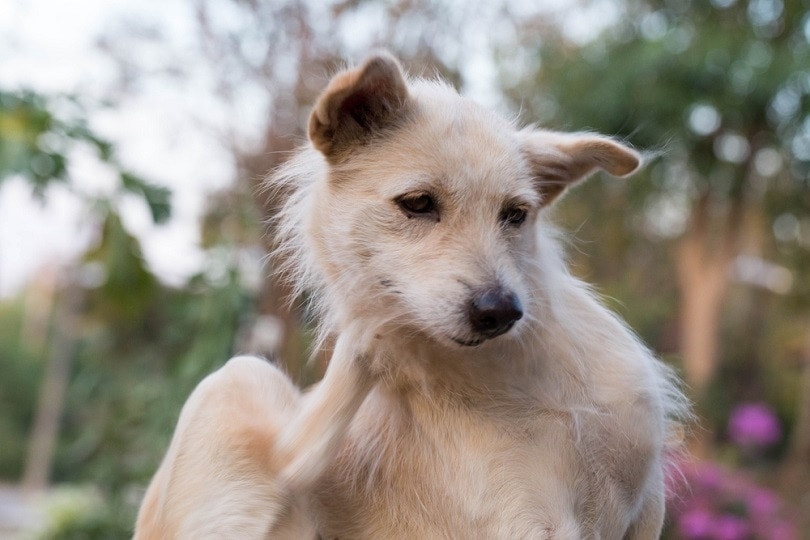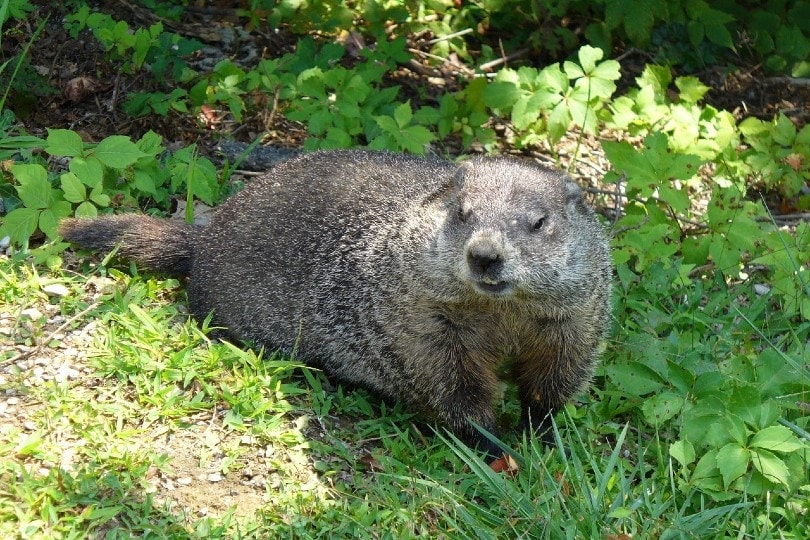Do Great Danes Bark a Lot? Breed Facts & FAQs
Updated on
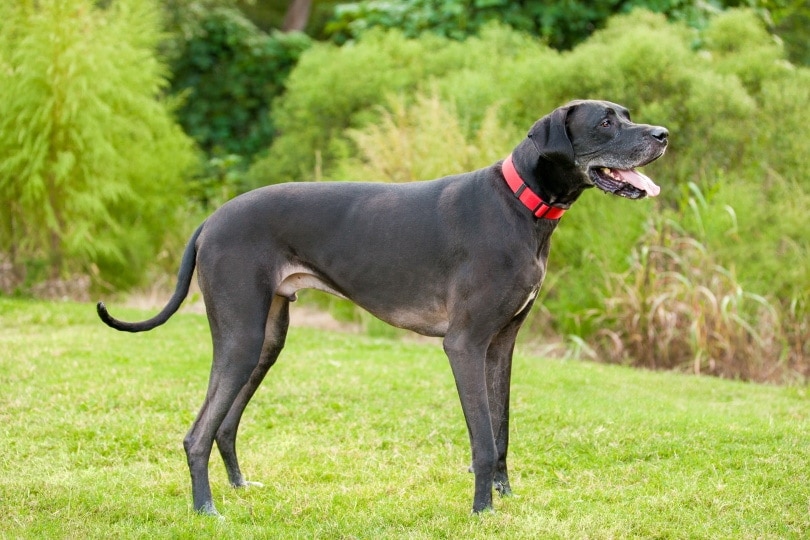
Click to Skip Ahead
Barking is how a dog communicates. All dogs bark or make sounds that express a variety of emotions or attempt to communicate something to us or the world in general. But sometimes, taking care of a dog that barks frequently can be trying. If you’ve been thinking about bringing a Great Dane home, you might want to know if they are barkers.
Great Danes aren’t known to be barkers, but you will certainly hear them when they do bark! How much a Dane barks depends on the dog, their training, and the situation.
Here, we get into what usually makes Great Danes bark and a few tips on how you can reduce the barking.
A Little Bit About Great Danes
Great Danes aren’t remotely Danish but are instead from Germany, where they were used as hunting dogs. They needed to be large and aggressive enough to hunt wild boars, but they eventually evolved into companion dogs.
They retained size but lost the aggression and became one of the gentlest of the giant breeds. Danes are amazing dogs because they are quite majestic and make wonderful guardians, and they are intelligent, devoted, and loving.
Since they are guardians, this means they guard their families and take this job quite seriously. They will definitely bark if they are triggered by something.
As you can imagine, when you have a dog that weighs an average of 150 pounds, the bark can be deafening if you’re too close to it!
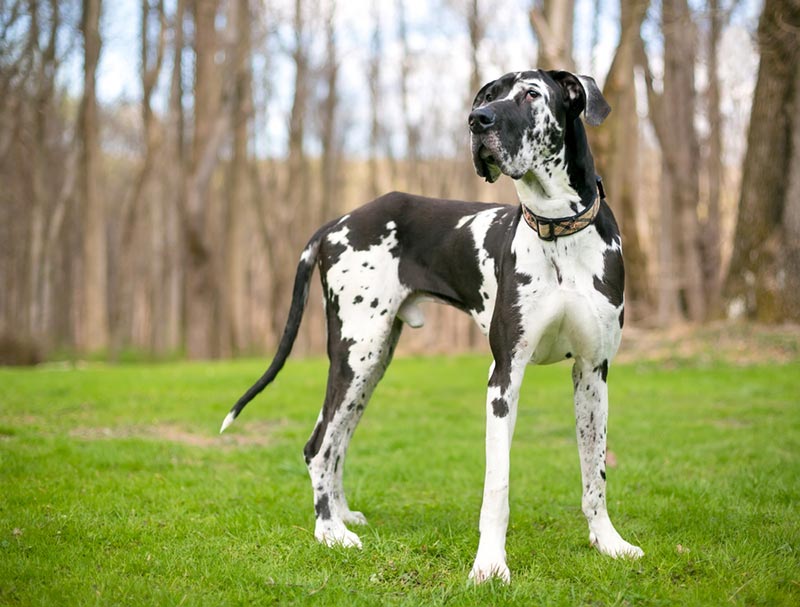
Why Do Great Danes Bark?
Danes bark as a method of communication. But you’ll notice that your dog will have different barks for different scenarios. Over time, you’ll be able to differentiate between the barks and understand what they mean.
The following are the primary reasons that dogs bark.
1. Boredom
When intelligent dogs, like the Great Dane, aren’t getting enough physical or mental stimulation, they will bark simply because they are bored.
While Great Danes aren’t overly energetic dogs, they still need to get the right amount of exercise and playtime. Aim for a minimum of 30 to 60 minutes of exercise daily.
2. Separation Anxiety
Not all Great Danes experience separation anxiety, but many individual dogs are likely to. Most dogs form powerful bonds with their owners.
When a dog is left alone most of the day, they may bark, but they may also engage in destructive behavior, like breaking your stuff and chewing things up.
3. Distress
When dogs are feeling nervous or confused, perhaps because they are in a new place or have been injured, they might start barking. This kind of barking is how they express their anxiety and fear due to being distressed.
4. Territorial
Barking at anyone who dares enter a dog’s territory is a common reason for barking. It is both an alarm to alert their owners and a threat to any intruders. Typically, though, these intruders are people just walking down the sidewalk or anyone who knocks on your door.
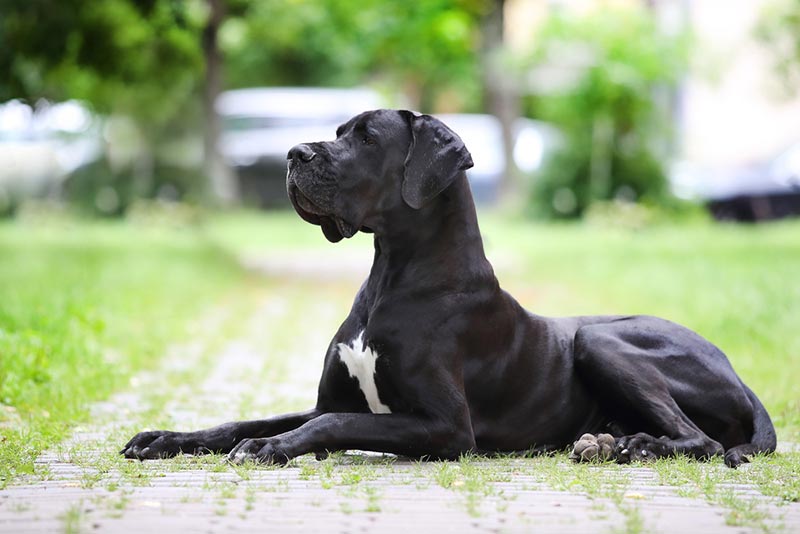
5. Looking for Attention
When dogs want your attention, barking is a surefire way to gain it! Barking can be their way of letting you know that they want to go outside, that it’s playtime, or that it’s time for dinner.
In addition to seeking your attention, they can also bark in the heat of the moment. Like when you start to throw the ball or frisbee, they will sometimes bark from pure excitement. Waiting impatiently while you’re about to throw the ball can undoubtedly lead to more barking.
6. Barking With Other Dogs
Just like yawns are catching, so is barking. When one dog starts barking in your neighborhood, many other dogs will join in. They could be reacting to the same thing, or perhaps they’re talking to each other.
Many dogs will also start barking when they greet each other. It’s typically joyful barking in these moments.
7. Poorly Socialized
Dogs that haven’t been appropriately socialized tend to bark more reactively than dogs with proper socialization and training. But even if you’ve adopted an adult Great Dane that didn’t go through the right kind of socialization, you can still rectify this.
Obedience and training classes are how you can get highly beneficial training, as well as the opportunity to socialize with other dogs and people.
Do Great Danes Bark a Lot?
Great Danes don’t tend to bark any more than other breeds. How much any individual Great Dane barks depends on the dog themselves, in addition to their socialization and the circumstances.
While your Great Dance might be relatively quiet, someone else might bark at almost everything. There are a few steps that you can take to reduce barking if it’s a problem.
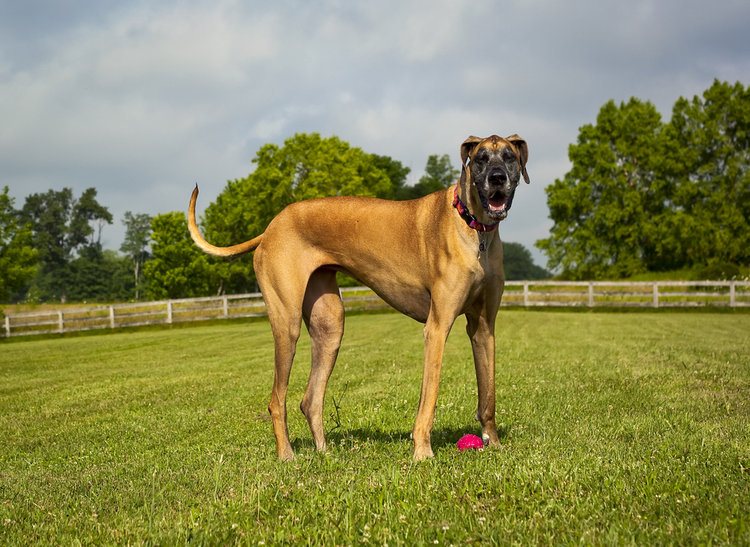
Tips for Reducing Barking
The best way to deal with a dog that’s barking excessively is to figure out why they are barking in the first place.
1. Territorial Problems
If your Great Dane loves to sit in front of the window and bark at passersby, the simplest solution is to close the blinds or curtains. It can also help to create a quiet area for your dog. This could be a crate or a sectioned-off piece of the kitchen or living room where you will put your dog during these barking episodes.
You can also try training them, which should include teaching them the quiet command. This will teach your Dane to stop barking on command, and while it does take a bit of patience, it is well worth it.
2. Separation Anxiety
If your Dane suffers from separation anxiety, you might want to try crate training if you haven’t done so already. Creating a safe and cozy crate for your Dane can help with separation anxiety, as can spending quality time with your dog when you are home.
Try to wear out your dog before you leave for the day with a good walk and play session. Invest in toys that will keep your Dane busy when you’re out.
If you work full time outside the house, think about breaking up your Dane’s long day of isolation by going home for lunch or asking a friend, neighbor, or family member to check in on your dog and take them for a walk.
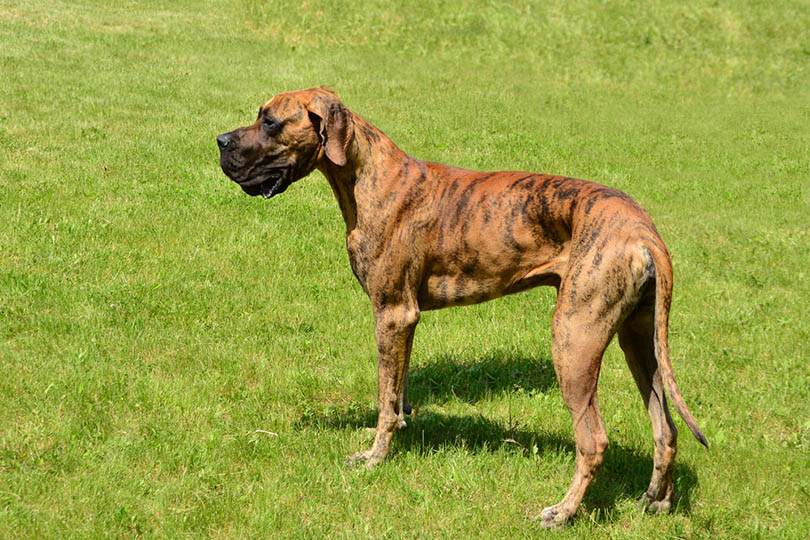
3. Reactive Barking
If your Great Dane tends to bark at visitors or anyone who knocks at the door, you can train them with the “pick up” command. It works by teaching your Great Dane to pick something up, such as a toy, on your command.
So, when someone knocks on your door, you will use the pickup command, which will redirect your dog away from barking, and the focus is then on picking up the toy.
Eventually, your dog will associate a visitor at the door with picking up the toy. This also prevents your dog from barking because their mouth is otherwise occupied.
4. Barking for Attention
You should ignore this type of barking because if you react in any way (positive or negative), it will reinforce the concept that barking gets your dog what they want: your attention.
If your Dane barks with excitement when you come home, ignore your dog and calmly walk away. Once your dog has calmed down and is no longer barking, then give them your attention. You can also use the “quiet command” if you’ve trained your dog for this.
Conclusion
Many dogs tend to have barking fits at some point, although some breeds are undoubtedly barkier than others. Great Danes have loud, booming barks, but for the most part, they are not a breed known to be overly barky.
If you’re the proud owner of a barky Dane, remember to focus on training, and keep it positive and calm. Punishing any dog for barking will only confuse them and make them fearful of their owner.
Owning a Great Dane is not for everyone — their sheer size alone requires a big budget and space! But these beautiful dogs are ideal for many families, and if you’re looking for a giant breed that wants to be a lap dog, the Great Dane might just be perfect for you!
See also:
- 12 Best Hunting Dog Breeds (With Pictures)
- Can Great Danes Be Service Dogs? Vet-Reviewed Facts & Info
Featured Image Credit: Tara Lynn and Co, Shutterstock





